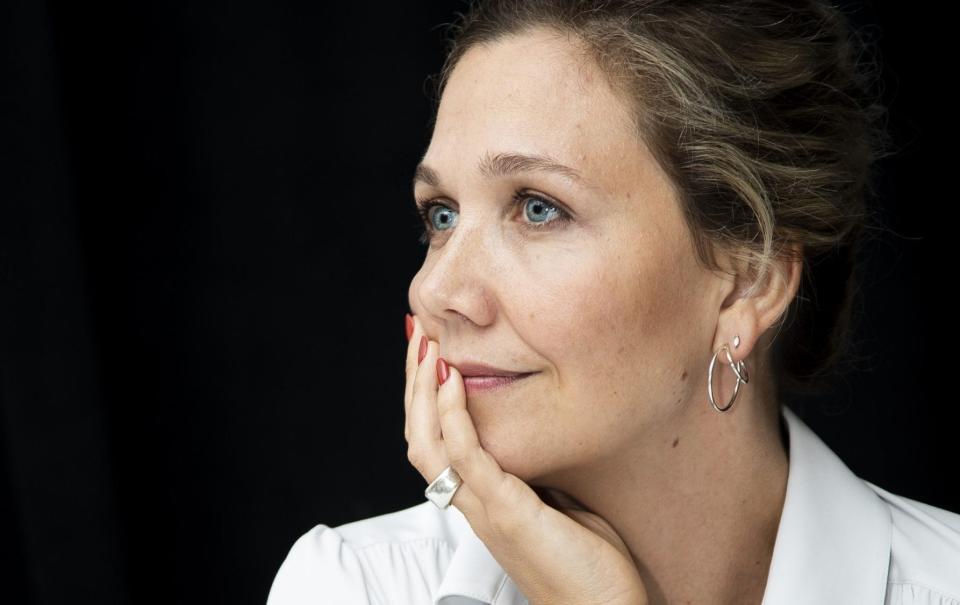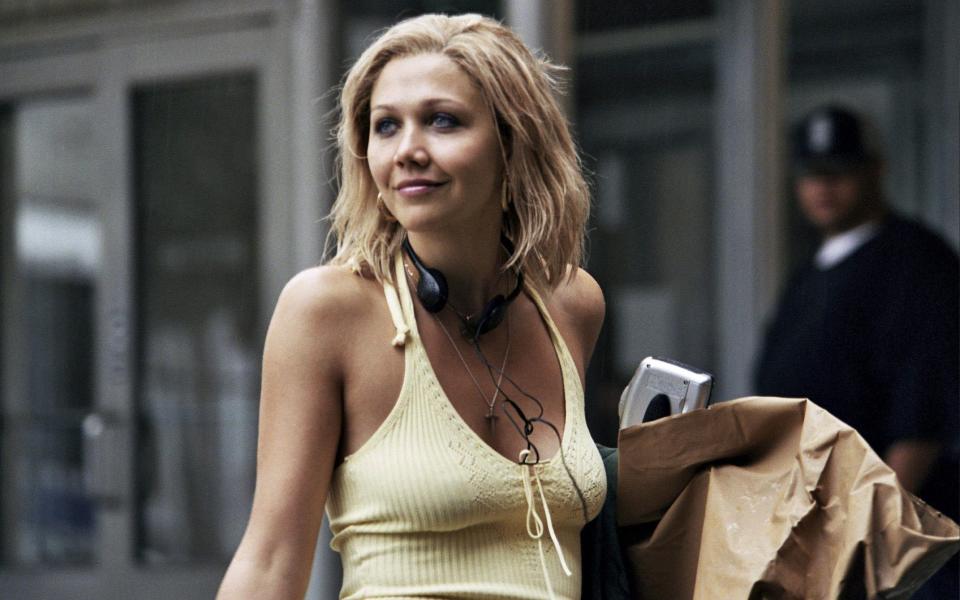Maggie Gyllenhaal interview: ‘Sex scenes? I’m kind of an expert’

Just before Maggie Gyllenhaal told her husband to get into bed with a beautiful and talented woman 13 years her junior, she found herself wondering if it was such a good idea.
Gyllenhaal had spent the past two years writing and preparing to direct The Lost Daughter, an adaptation of a novel by Elena Ferrante, the pseudonymous Italian author whose true identity is a closely guarded secret. Now the all-important casting process had begun: to play Leda, the film’s heroine of sorts, she had secured Olivia Colman and the striking young Irish actress Jessie Buckley, who would split the role between present-day and flashback scenes.
Meanwhile, for the raffishly handsome Professor Hardy, she fancied her husband, the actor Peter Sarsgaard. But she was less keen on the thought of directing him in the love scenes she’d just written between Hardy and the younger, married Leda – the intensity of which had to totally convince if the audience were to buy into Leda’s later choices and regrets.
“I thought to myself, ‘Do I really want to create that situation?’” Gyllenhaal, the 44-year-old star of Secretary and Crazy Heart, recalls with a grimace. “Where my husband is playing the object of desire for this brilliant, beautiful young actress?”
She got as far as drawing up a list of alternative candidates, then relented. “We’d been together 20 years, through all sorts of joys and difficulties, and I knew that there was no one who could begin to do this role like he could. I mean, he is irresistible, which is exactly what the character needs to be. So I told myself” – she raises her hands in submission – “‘it’s going to be fine.’”
For his part, Sarsgaard, 50, committed heroically to the canoodling. And her decision certainly paid off: The Lost Daughter’s love scenes are indisputably, well…
“Hot?” Gyllenhaal suggests. “The sex just feels unavoidable, right?” She ascribes the chemistry in part to the fact that Buckley and Sarsgaard’s characters represent a meeting of minds: both work in the rarefied field of poetry translation; he reckons her Italian Auden is gorgeous.
“Maybe this is a female thing,” Gyllenhaal suggests, “but if someone really gets how your brain works, right down to the molecule, there’s nothing sexier than that.”
During lockdown last year, Gyllenhaal made a short film called Penelope, also featuring Sarsgaard: the couple shot it around their home in Vermont as part of a mid-pandemic Netflix wheeze called Homemade. But The Lost Daughter – also a Netflix production, though it opens first in cinemas next month – marks her feature-length directorial debut.

It was a personal project long before she roped in her spouse. For years, Gyllenhaal had been a fan of Ferrante’s Neapolitan quartet, guzzling each instalment as it was published. Those led her to the author’s 2002 book The Days of Abandonment, which she found herself itching to help turn into a film. She wrote to Ferrante’s publisher to ask about the rights, which happened to be tied up elsewhere. But they suggested she consider The Lost Daughter, its slender, prickly follow-up, about a middle-aged academic whose surreally tense encounter with an unpleasant family on holiday forces her to reflect on her own flaws as a mother and wife.
In its pages, Gyllenhaal found everything she’d loved about Ferrante in concentrated form: “This truth-telling about the female experience of the world, and all the things we’ve collectively agreed to remain silent about.” When working on the screenplay, she found herself guiltily looking over her shoulder – particularly when writing scenes in which the younger Leda neglects or openly snaps at her young daughters. (Gyllenhaal and Sarsgaard also have two daughters, Ramona and Gloria Ray.) “Even just acknowledging those feelings, you feel so exposed,” she says.
True to form, Ferrante herself remained out of sight, and communicated with Gyllenhaal only occasionally, and always by email. Yet it was the author who insisted the actress not only direct, but also put her own slant on the material: an invitation Ferrante later wrote that she would never have extended to a man. “In fact, she said the contract would be void unless I directed,” Gyllenhaal says, obviously touched. “So I wrote back and said, ‘Well, let me write the script first and then we’ll see.’ But she refused to budge.”

Ferrante did read over the script, but gave only limited feedback. She gave her blessing for Gyllenhaal to change the story’s ending, though – albeit in ways which still chime with the novel’s intent. Did she glean any sense of the real Ferrante from her dealings with this literary enigma?

 Yahoo Autos
Yahoo Autos 